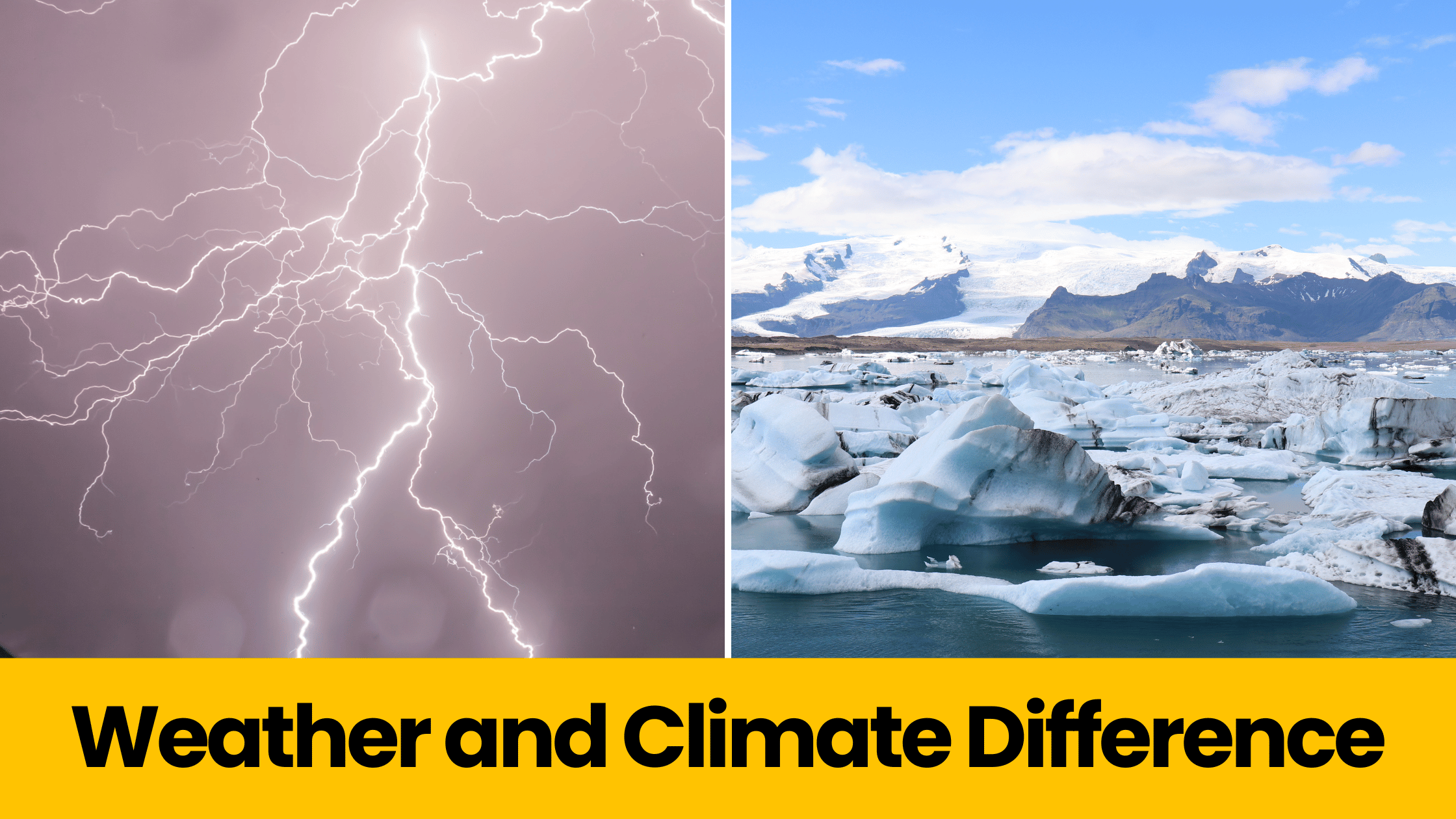You are planning a vacation to a new place where you haven’t visited before, so before you pack your clothes you decided to check the climatic condition of the new place. The climatic condition of the new place is found to be hot and Sunny and you decided to pack your summer wear but unfortunately, upon reaching the place, it was found raining. This may happen to any of us even when we had study the climatic condition of the place very carefully. To understand why the climatic condition is not a parameter in deciding the rainfall, snowfall or even a storm, we have to learn about the difference between weather and climate.
The Weather in an area is constantly changing from time to time. We cannot really predict the weather condition accurately but we can predict up to some extent. The weather in the morning maybe sunny, while there may be rainfall in the afternoon.
Weather may be defined as the state of the atmosphere at a particular time and place.
Climate, on the other hand, is the average weather condition of a particular place. It is also the sum of all the statistical weather information that helps describe the condition of the atmosphere present at a place for a long time.
For example, if Arizona was having a continuous rainfall for consecutive months or years, then we can tell the climate of Arizona is always raining but this doesn’t guarantee to have a sunny day on one particular day.
Climate data cannot predict weather condition
The difference between Weather and Climate can be described as follows: Weather is the state of the atmosphere at a particular time and place while Climate, on the other hand, is the average weather condition of a particular place.
Occurrence of weather
Various weather conditions on Earth such as rainfall, snowfall, hailstones, cyclones, and Hurricanes are produced by the combined effects of earth rotation and revolution, energy received from the Sun and the atmospheric conditions.
Difference between Weather and Climate
| Weather | Climate |
| Defined as state of the atmosphere at a particular time and place | Defined as average weather condition of a particular place |
| Short-term changes typically over hours, days or weeks | Long term changes usually over decades or centuries |
| Highly variable and can change rapidly | Relatively stable |
| Localized and specific to a particular location | Regional or Global and covering several places |
| Weather forecasts provide short-term predictions for specific regions | Climate predictions focus on long-term trends and changes in weather patterns. |
| Weather data can obtained from weather stations, satellites, and sensors | Climate data relies on historical weather data collected over an extended period |
| Impact on daily activities, agriculture and transportation | Influences long-term factors such as sea level, El Niño and La Niña |
The nature of weather mainly depends upon 6 basic elements which are present in the atmosphere
1. The temperature of the air
2. The humidity of the air
3. Type of cloud formation and amount of cloudiness
4. The pressure exerted by the air
5. Type and amount of precipitation
6. Speed and direction of the Wind

